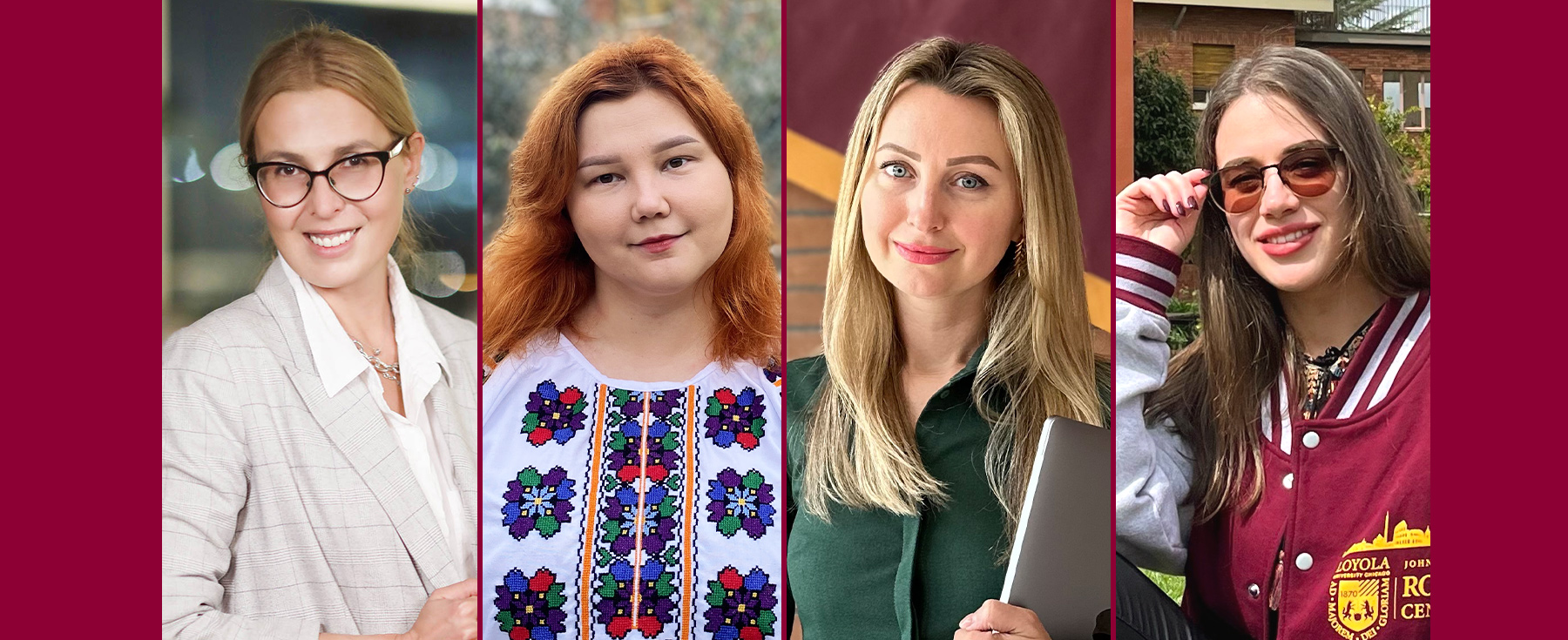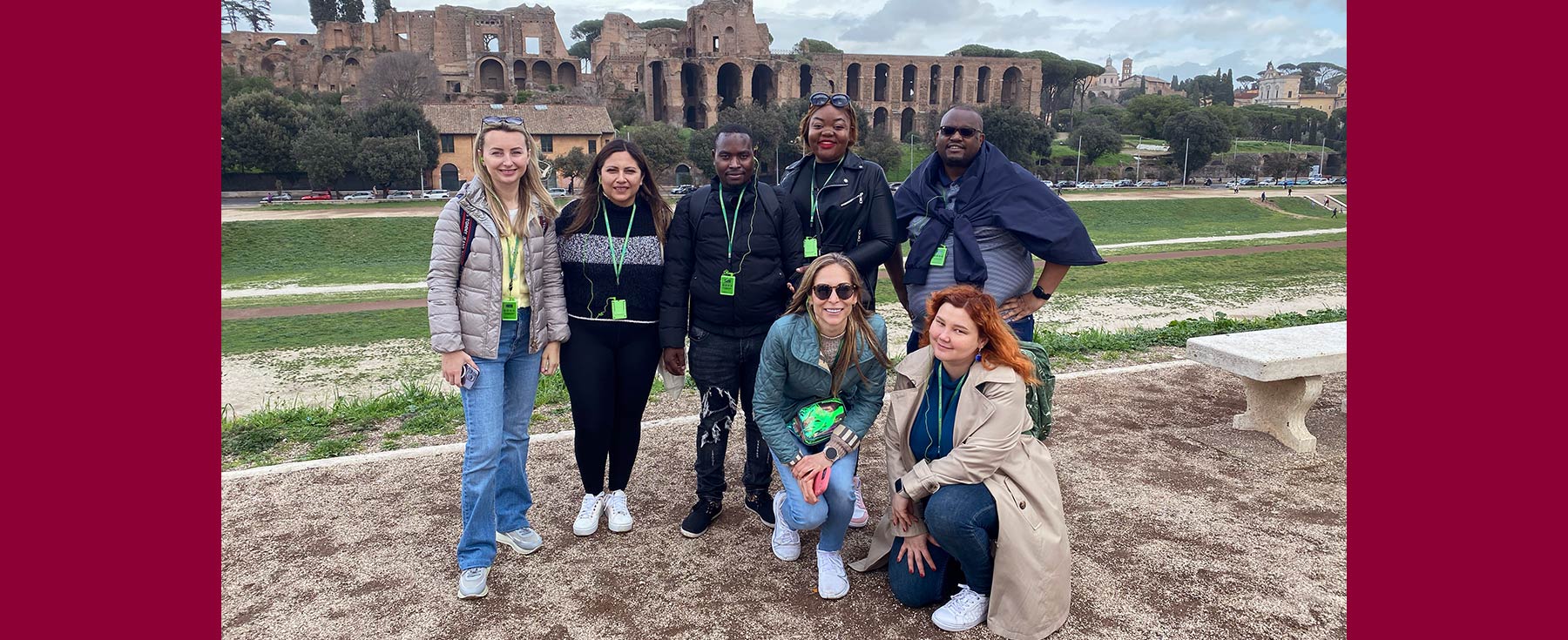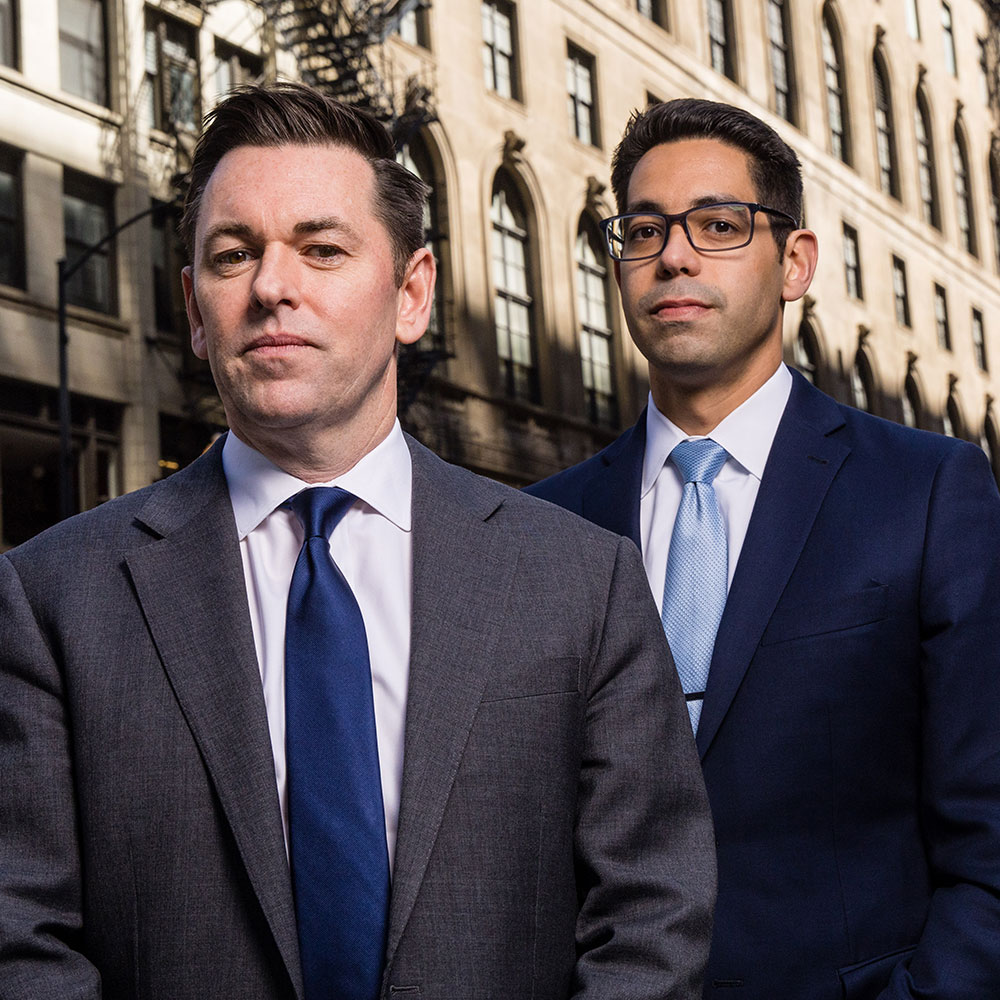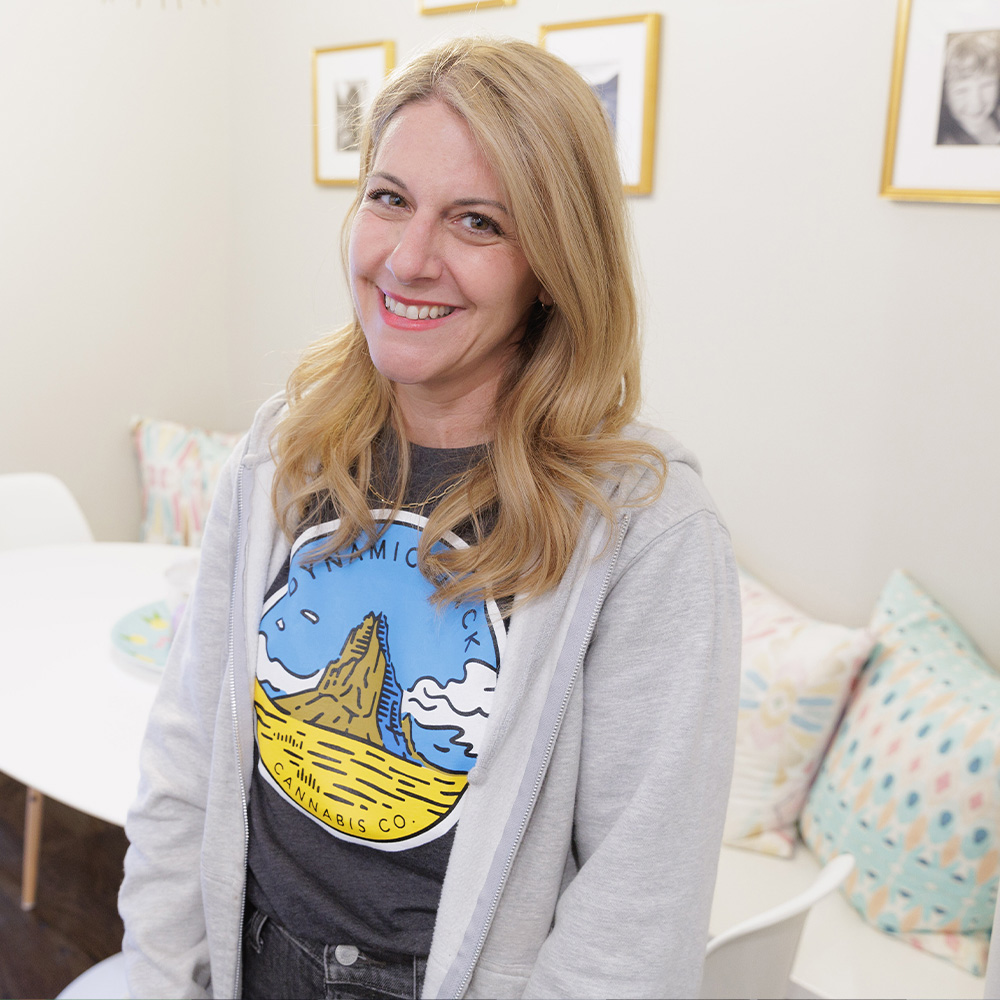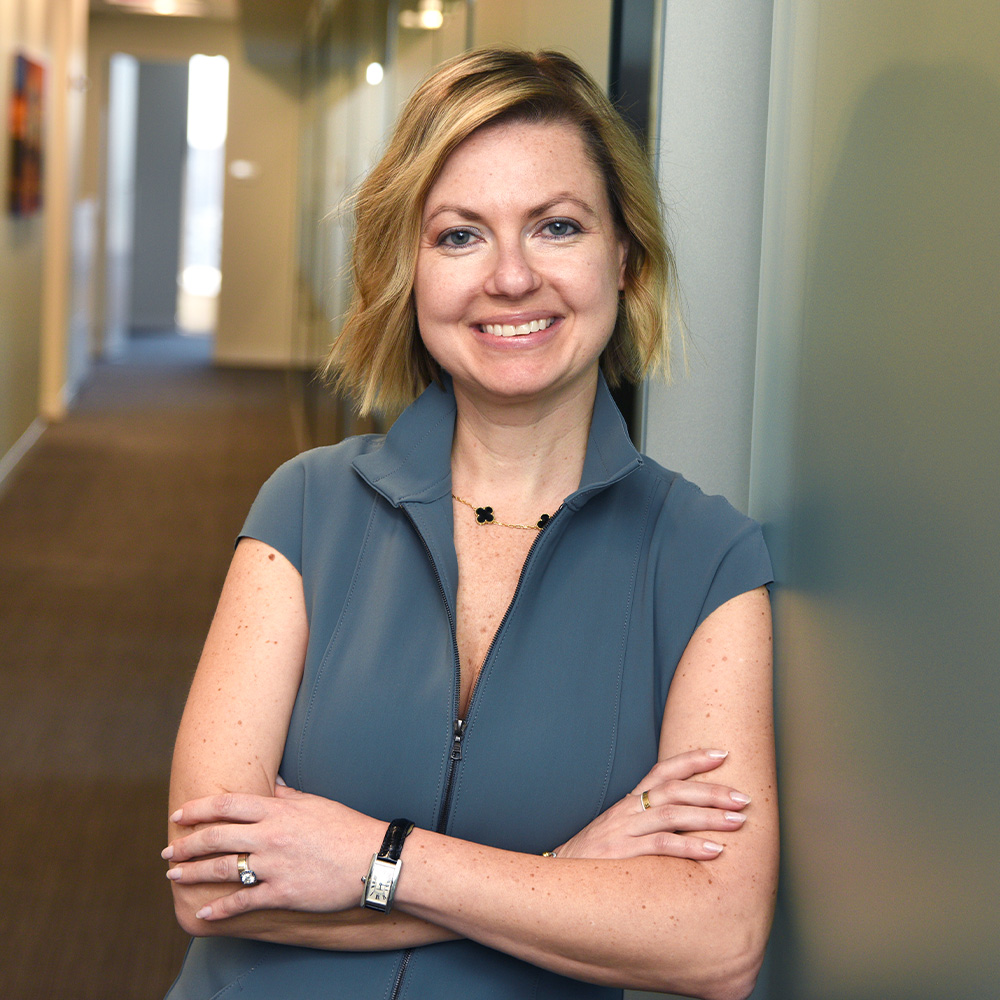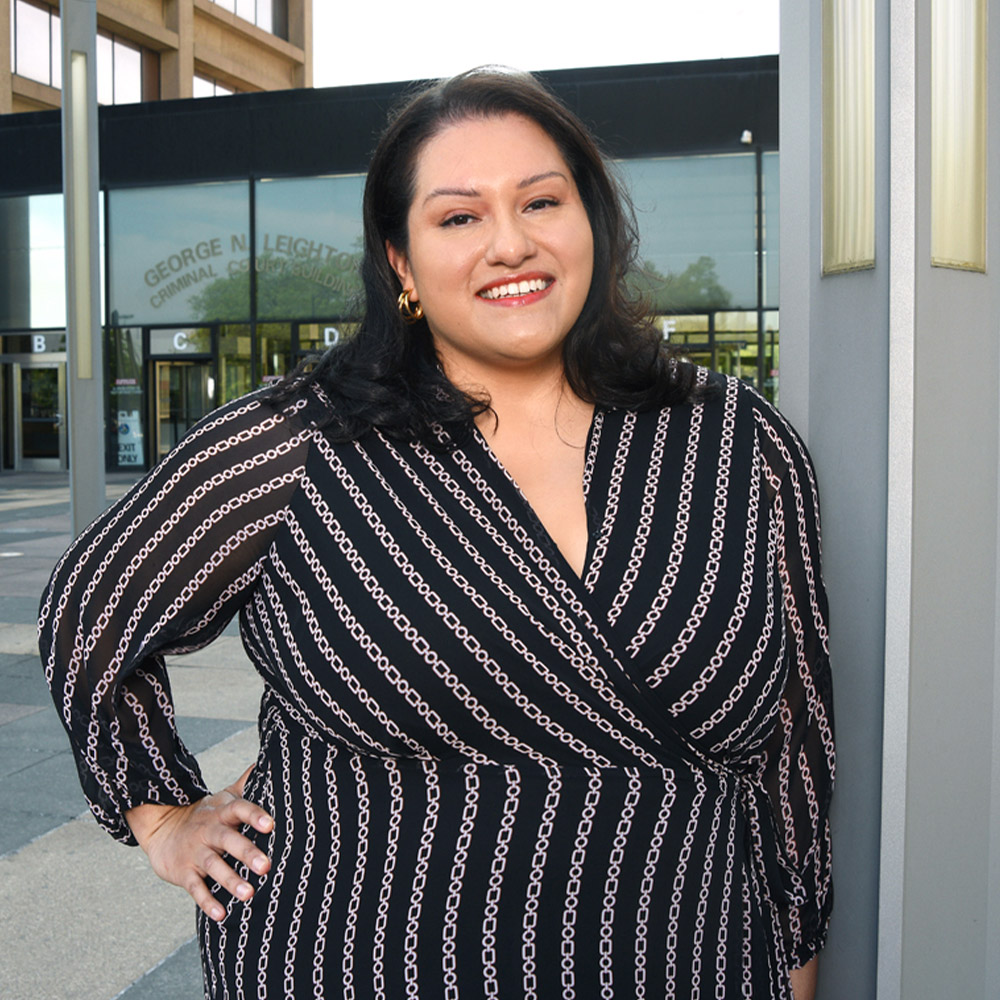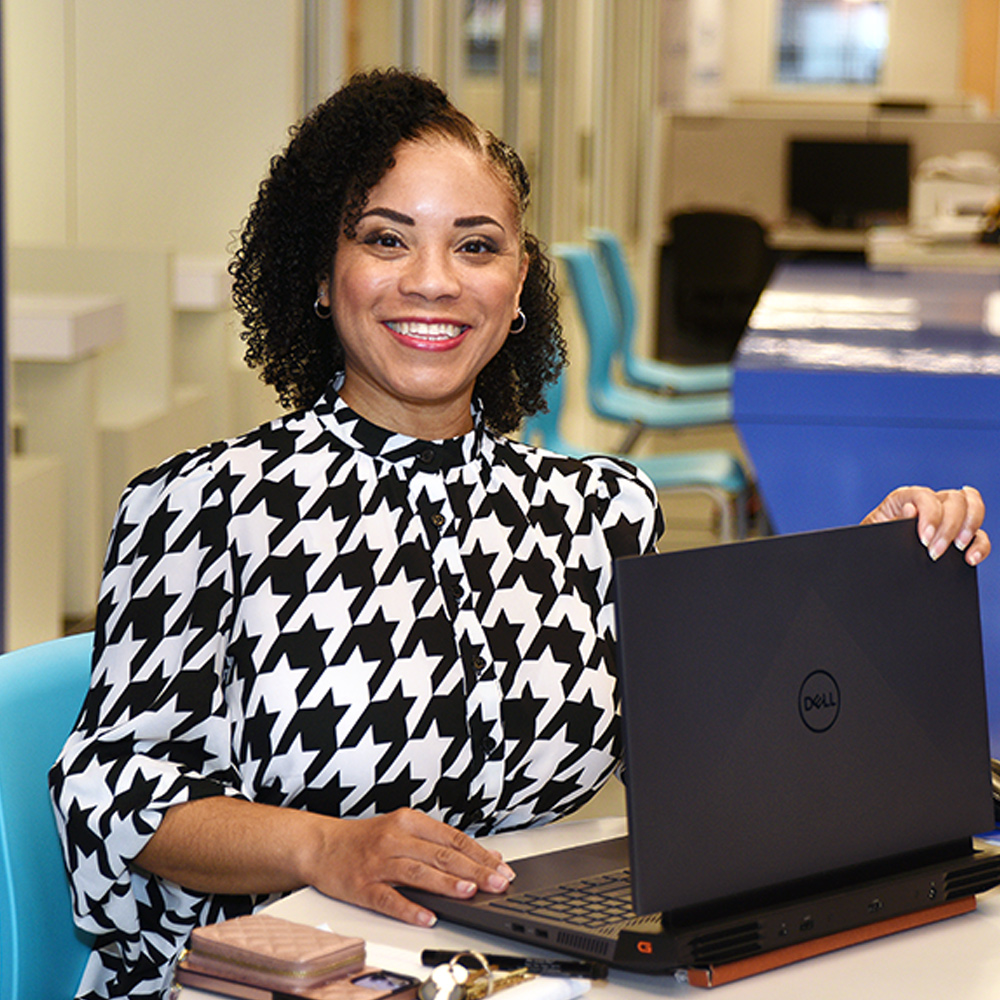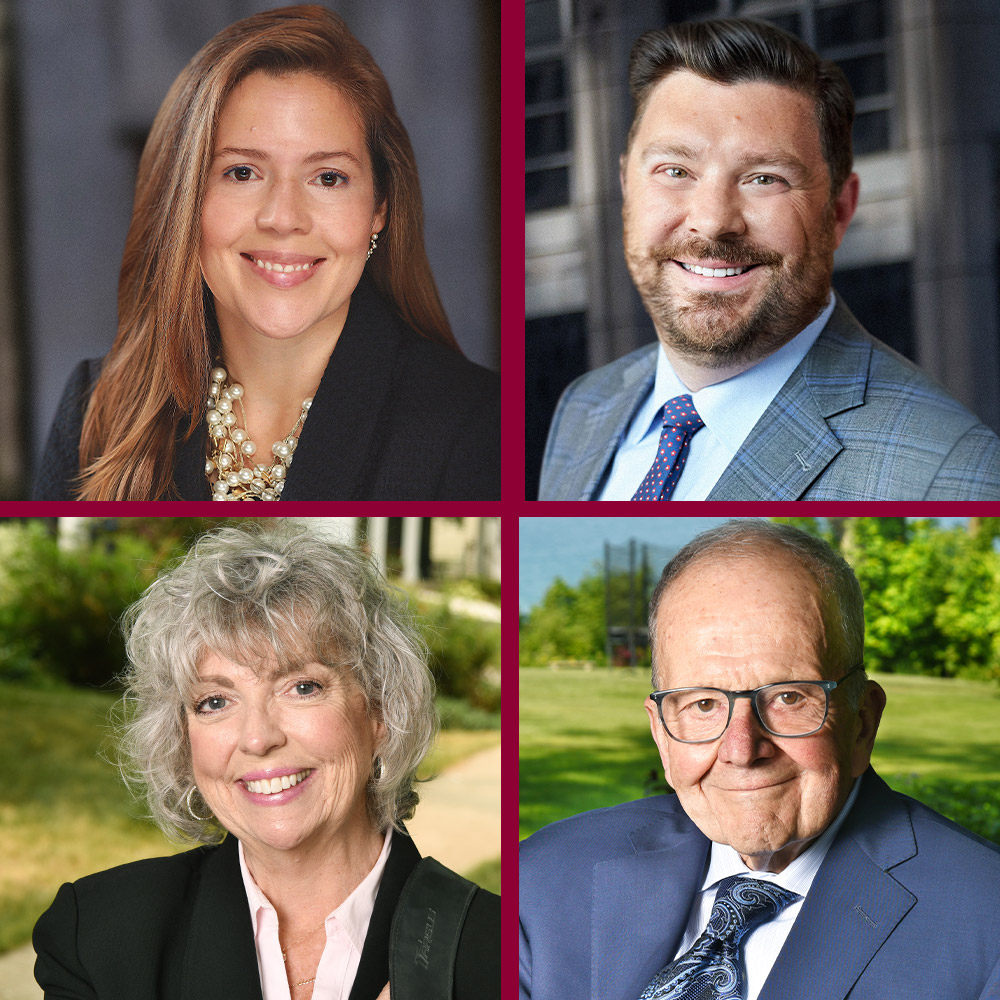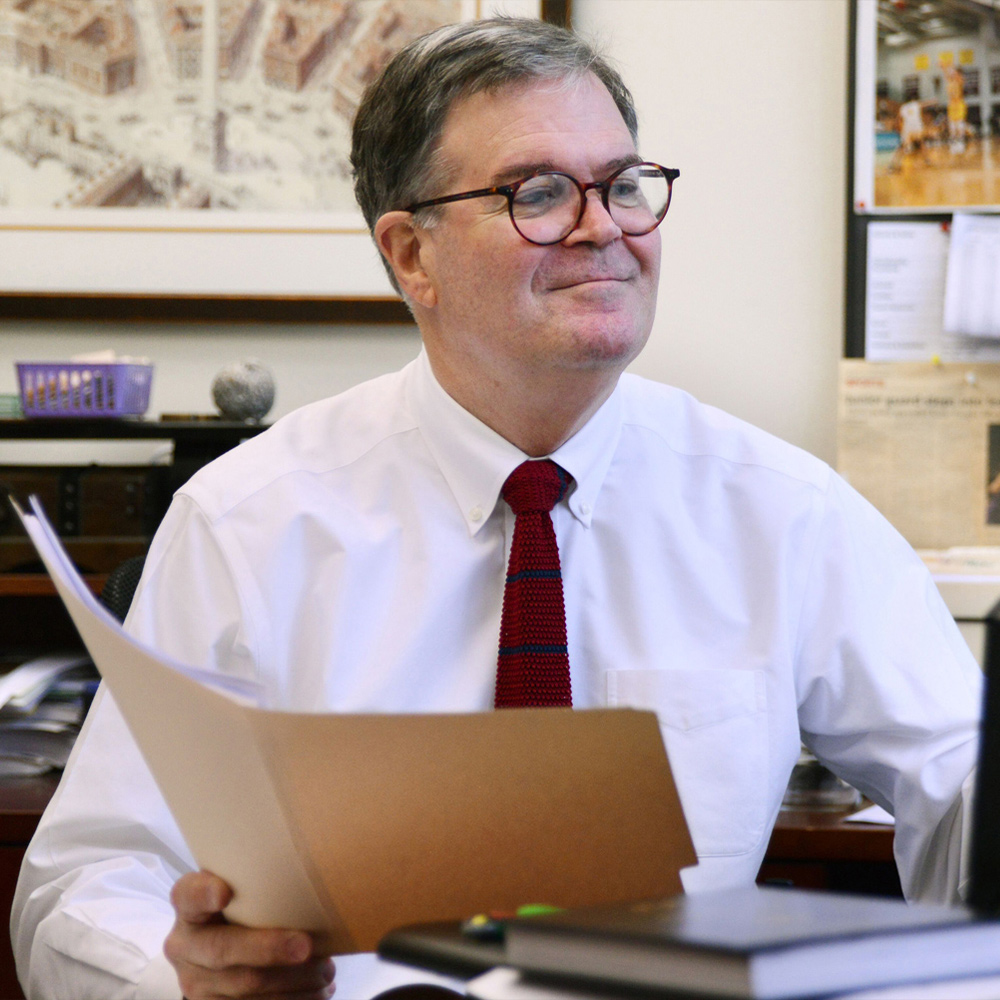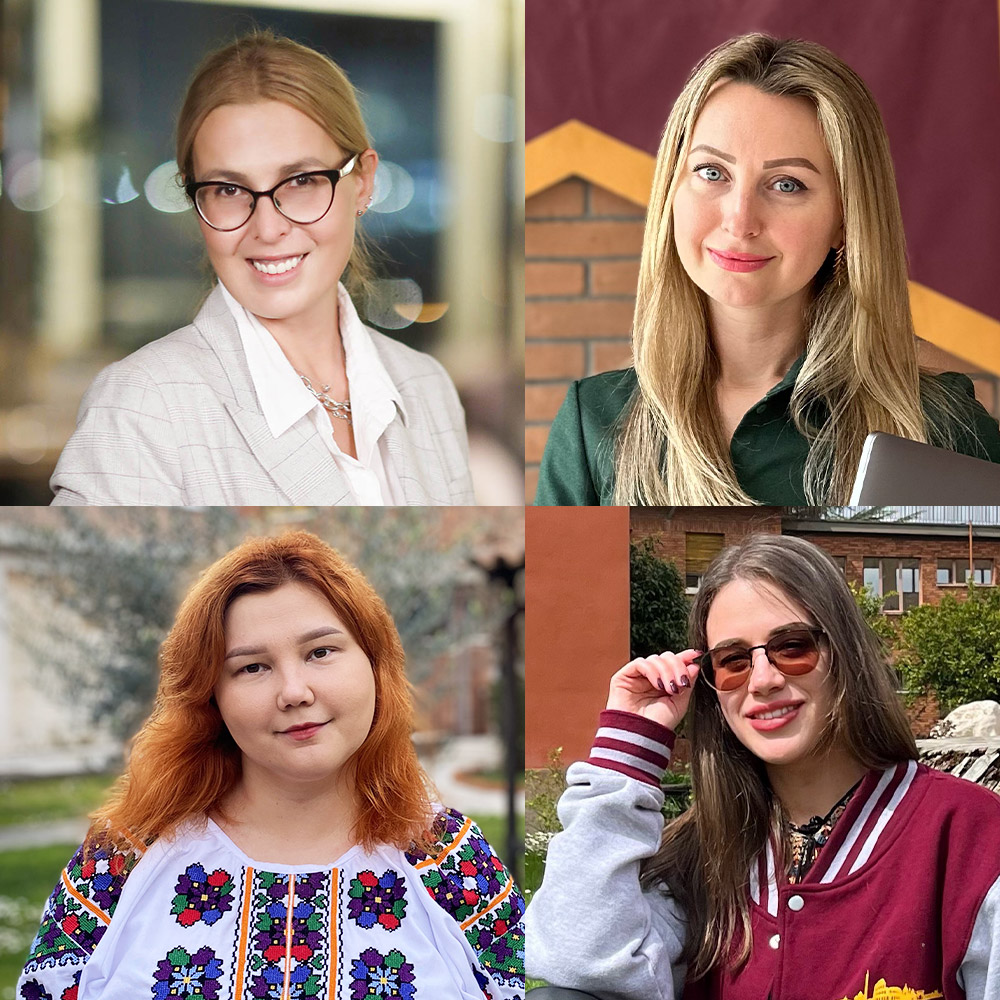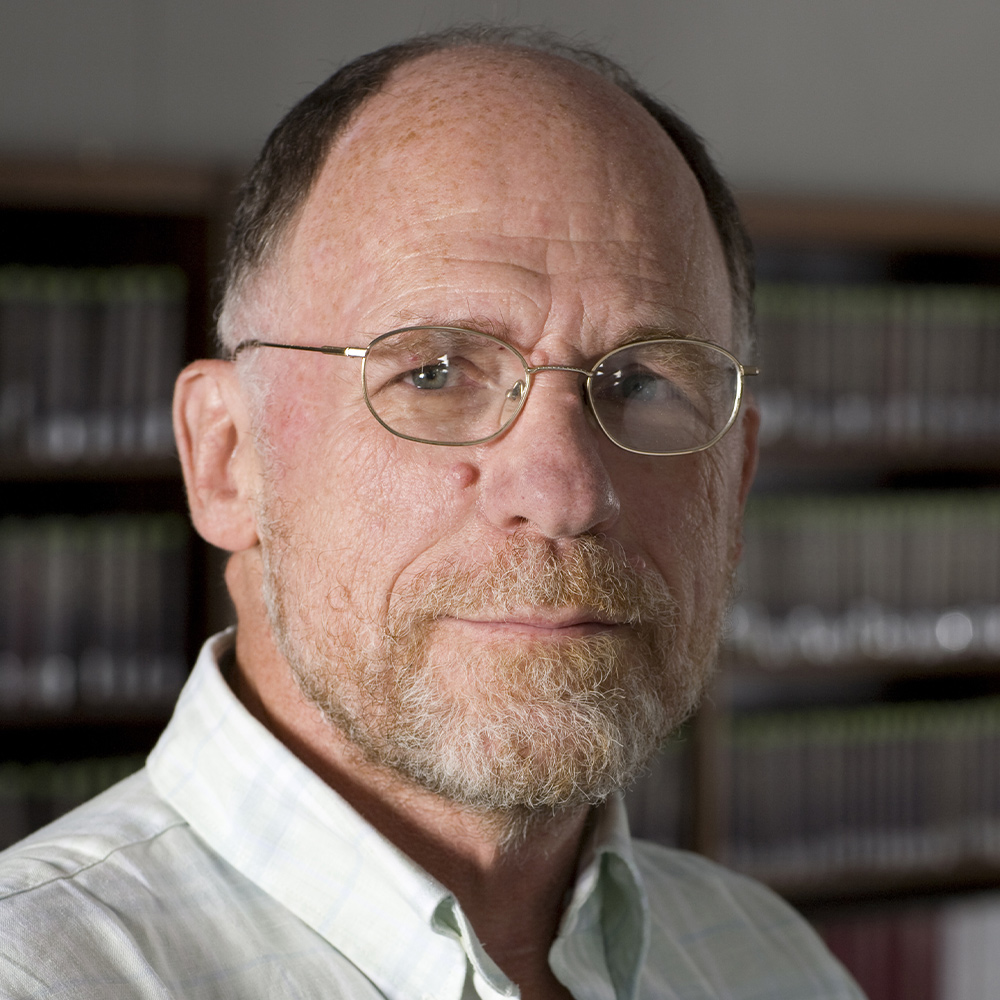Forces for change
Based at Loyola’s John Felice Rome Center in Italy, PROLAW offers LLM and MJ degrees to students from across the globe. It’s a unique academic and experiential learning program that prepares students for jobs in the growing rule of law and development field.
The Ukrainian students enrolled in the program bring impressive, diverse experience in the legal, human rights, public policy, and governmental spheres to their studies, which have taken on a profound urgency given the war.
Okhotnikova, a human rights lawyer in Ukraine, has helped litigate many winning cases in the European Court of Human Rights (ECHR). Since the war began, she’s worked with Human Rights Centre ZMINA, a nongovernmental organization (NGO), monitoring and documenting Russian activities such as the use of seized cell phone data to identify pro-Ukraine activists and the secret abductions of journalists and activists in Russian-occupied territories. “We’re not naive enough to think Ukraine can keep the world’s interest if this war goes on too long,” she says. “For us, documenting everything and making sure the world knows it is a question of life, because many of us are well known in Russian intelligence and we’ll be executed [if the war is lost].”
Voitenko is a judge of the Sviatoshynskyi District Court of Kyiv and former judge of the Bolgrad District Court of Odessa. She’s held various posts with the Secretariat of the Committee on Justice of the Verkhovna Rada, Ukraine’s unicameral parliament. “Ukraine is in a long period of reform of the judicial system,” she says. “As one person I can’t change all the world, but I believe even one person can change something.” In PROLAW, Voitenko has studied people-centered justice, an approach to rule of law that isn’t top-down but considers the needs and input of users of the justice system. “I want the concepts of people-centered justice to become fashionable in Ukraine,” she says.
Hrytsenko began her career as a human rights lawyer and consultant, working in the framework of the Organization for Security and Co-operation in Europe’s Office for Democratic Institutions and Human Rights and on projects with Caritas Ukraine. She’s now a project manager with SoftServe, a global digital solutions company with Ukrainian roots, and plans to continue in project management while consulting or volunteering in the areas of human rights and justice reform. “I truly believe my country will be developing according to rule of law standards,” she says, “and I hope I can add my perspective by using my experience and the expertise I’ve gained during this program.”
“I truly believe my country will be developing according to rule of law standards.”
The coordinator of the Equal Opportunities Caucus in the Parliament of Ukraine, Verteba has also been a senior advisor on gender policy and program activities for the Ukrainian Women’s Congress and deputy chair of the Institute for Tax Reform. “I’m convinced the rule of law is fundamental for Ukraine’s sustainable development,” she says. About 90 percent of Verteba’s home city, Mariupol, has been destroyed in the war, so she has a special interest in working with displaced persons. “We have to help the women who have left the country with their children to return,” she says.
Supportive professors and a chance to gather in person
The Ukrainian students say PROLAW administrators and faculty worked hard to accommodate the unique obstacles faced by students whose country is at war.
“My poor professors,” Okhotnikova says. “Once I was scheduled for a Zoom with a professor and had to email her: ‘We’ve planned our call for this time, but now Russian rockets are on their way to Kyiv and based on my previous experience, they’ll impact electrical stations in five minutes. Could we reschedule?’ and she said, ‘Oh, my God, yes, please forget about the Zoom and just be safe.’”
The blended study format of PROLAW includes time spent at the Rome Center, a difficult proposition for students living in or refugeed from a war-torn country. Still, the problem-solving Ukrainian students managed to get to the Eternal City.
“There are no flights to Ukraine, so I went to Poland, and flew to Rome from there,” recalls Hrytsenko. “Although I didn’t have the opportunity to spend the entire semester in Rome, it was a priceless opportunity to immerse myself in the life of the Rome campus, meeting the faculty members and students from different countries, hearing their stories and establishing personal relationships.” She also was able to meet classmates from Ukraine in person.
What lies ahead
When the conflict ceases, the students want to be in Ukraine, helping their beloved country recover, expanding the rule of law, and safeguarding human rights. Meanwhile, they’re meeting the moment.
Okhotnikova hopes to use her work with ZMINA as the basis for her PROLAW capstone project and share the information gathered with relevant organizations like the International Criminal Court, ECHR, and United Nations bodies. “I want the perpetrators to face justice,” she says. “Whatever I end up doing later, I believe this will be a big part of my professional career.”
Voitenko plans to use her time after completing PROLAW, and before she returns to work, to create a website or other resource that will help Ukrainians more effectively navigate the judicial system. With a heavy caseload and a shortage of judges, she says, normal life never allowed her time to take on this project.
Verteba’s work with the parliament’s Equal Opportunities Caucus has shifted during wartime. “Everything that existed before the war is still important, but we have many problems we have to solve right now,” she says. For instance, the caucus is working on legislation related to wartime sexual violence and partnering with NGOs to find appropriately sized clothing and protective vests for its women soldiers, who represent 25 percent of the Ukrainian army.
“When the war started, I had to collect all my optimism in a heap to believe I need new knowledge to further work on positive changes in Ukraine, especially after a victory,” Verteba says. “In such difficult times, life gives us a chance to learn, and with new experiences and strength, return to what you love to do. Thank you, Loyola, for this chance and trust—and glory to Ukraine.” –Gail Mansfield (July 2023)
From Loyola Law magazine 2023
